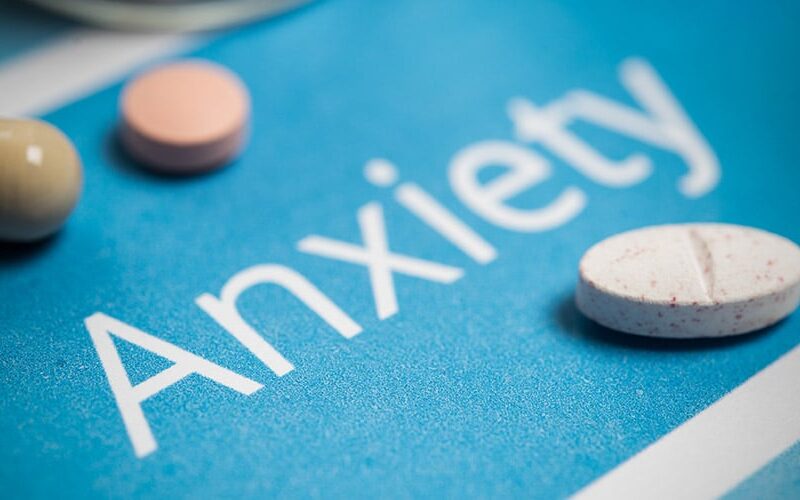Since Anxiety has been known as part of the reasons for weight loss, many people ask the question “Do Anxiety Meds cause Weight Gain?” and we’ve got just the answers that have been looked for. Millions of people all over the world are affected by the common mental health condition of anxiety. In order to control the symptoms and enhance the quality of life, healthcare professionals often prescribe anxiety meds. In this article, we’ll delve into the relationship between anxiety meds and weight gain, exploring the different types of medications and the factors that contribute to weight changes. Let’s examine the evidence to better understand the impact of anxiety medications on body weight.
Understanding Anxiety Meds
Healthcare professionals prescribe anxiety meds, also known as anxiolytics or tranquilizers, to alleviate the symptoms of anxiety conditions, include panic disorder and generalized anxiety disorder (GAD), and social anxiety disorder. Each of these medications works by targeting specific neurotransmitters in the brain to restore a balance of chemicals responsible for mood regulation.
Selective Serotonin Reuptake Inhibitors (SSRIs):
SSRIs, such as sertraline and fluoxetine, are a class of antidepressants that are often prescribed for anxiety disorders due to their ability to regulate serotonin levels in the brain. Serotonin is a neurotransmitter that is essential for controlling mood, and increasing its availability can help reduce anxiety symptoms.
Benzodiazepines:
Benzodiazepines, like alprazolam and diazepam, work quickly to provide short-term relief from anxiety. They enhance the effects of a neurotransmitter called gamma-aminobutyric acid (GABA), which inhibits certain brain signals, leading to a calming effect.
Serotonin-Norepinephrine Reuptake Inhibitors (SNRIs):
Another class of antidepressant that is frequently used to treat anxiety disorders are SNRIs, like venlafaxine and duloxetine. In addition to targeting serotonin, they also regulate norepinephrine, another neurotransmitter involved in mood regulation.
Tricyclic Antidepressants (TCAs):
TCAs like amitriptyline may still be utilized for specific forms of anxiety, despite being less frequently recommended nowadays due to newer drugs. They function by preventing serotonin and norepinephrine from being reabsorbed, so boosting their availability in the brain.
The Link Between Anxiety Meds and Weight Gain
Weight gain is a complex phenomenon influenced by multiple factors, including genetics, lifestyle, and overall health. Several research has looked into the potential connection between anxiety medications and changes in weight, and while the evidence is not entirely conclusive, some patterns have emerged.
SSRIs and Weight Gain:
Among the different classes of anxiety medications, SSRIs have been most extensively studied concerning weight gain. People who use SSRIs could gain a little weight, although not everyone will be impacted. Although the precise causes of this weight gain are not fully known, it is thought that variations in serotonin levels and their impact on the control of hunger may be a factor.
According to a research in the journal JAMA Psychiatry, those using specific SSRIs, such as paroxetine and amitriptyline, were more likely to experience weight gain than those on other antidepressants. However, the weight gain was generally modest, and the benefits of symptom relief often outweighed this potential side effect.
Benzodiazepines and Weight Gain:
Benzodiazepines are frequently used as a short-term treatment for anxiety symptoms. Some people may have larger appetites owing to less anxiety, even though they aren’t directly linked to weight gain, which could cause weight changes.
SNRIs and TCAs:
Though less researched than SSRIs in terms of weight gain, certain reports indicate that some people may have a little weight increase when using SNRIs and TCAs. Like with SSRIs, the effects can vary from person to person.
Factors Contributing to Weight Changes
It’s essential to recognize that not everyone taking anxiety medications will experience weight gain. Several factors influence individual responses to these medications:
Genetics:
Each person’s genetic makeup plays a significant role in how their body metabolizes medications and responds to changes in serotonin and other neurotransmitters. Some individuals may be more prone to weight gain due to genetic factors.
Lifestyle:
Diet and physical activity levels can influence weight changes independently of medication use. Poor eating habits and sedentary lifestyles can cause weight gain, especially if individuals turn to comfort eating in response to anxiety.
Pre-existing Conditions:
Some individuals with anxiety disorders may have underlying medical conditions that predispose them to weight gain. For example, individuals with depression or metabolic disorders may be at a higher risk.
Dosage and Duration:
The dosage and length of time a person takes anxiety medications can affect their potential for weight gain. Higher doses and long-term use might increase the likelihood of weight changes.
Managing Weight Changes
If you are concerned about the potential for weight gain while taking anxiety medications, there are several strategies you can discuss with your healthcare provider:
Regular Exercise:
Regular physical activity can aid with weight management and alleviate anxiety symptoms. Exercise not only helps in weight loss but also improves your mood and lowers stress.
Balanced Diet:
Adopting a well-balanced diet can contribute to weight management and overall well-being. Focus on whole, nutrient-rich foods and avoid excessive consumption of sugary or high-calorie processed foods.
Monitoring and Communication:
Regularly monitoring your weight and discussing any concerns with your healthcare proffesional can help identify and address weight changes promptly. Open communication is vital in finding the most suitable treatment approach.
Medication Adjustments:
In some cases, your healthcare provider may be able to adjust the dosage or switch to an alternative medication if weight gain becomes problematic. However, never make any changes to your medication regimen without consulting your doctor first.
Conclusion
In summary, anxiety medications can potentially cause weight gain in some individuals, especially in the case of SSRIs. But many things can affect how much weight changes, so not everyone will notice this adverse effect. It’s critical to be candid with your healthcare practitioner if you are taking anxiety drugs and worry that you could gain weight. Together, you can explore strategies to manage anxiety effectively while addressing any potential weight changes. Remember, everyone’s response to medication is unique, and what works for one person may not apply to another. You can work toward locating the most effective treatment strategy that meets your particular needs by giving your emotional and physical health the priority they deserve. Always consult a qualified healthcare professional for personalized guidance and support on your journey toward better mental health.






